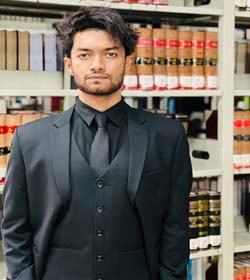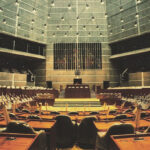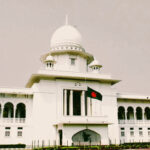Delving into Article 39 of the Constitution: Endeavor to Lessen Ambiguity between Symbolic Speech and Reasonable Restriction

The journey of democracy is intimately intertwined with the essential concept of freedom of speech. Without this fundamental pillar, democracy cannot fully flourish. The genuine essence of democracy remains incomplete without the liberty to articulate thoughts. The cherished right to voice beliefs and principles, underscored by the venerable constitutional assurance of freedom of thought and conscience, serves as the bedrock of democratic ideals. From its very inception, Bangladesh and democracy have been inextricably linked.
In this study, Article 39 of the Constitution emerges as a pivotal cornerstone. Its significance lies in its provision for the freedom of speech. This article stands as a beacon, illuminating the path of open expression and discourse in a manner that is both straightforward and elegantly profound.
Article 39 of the Bangladesh Constitution promises freedom of expression and conscience, but is it boundless or without any constraints? Definitely not, it gracefully acknowledges that there are certain limits and boundaries to be considered. But to what extent? That is arguable. Let’s break down Article 39(2) of the Bangladesh Constitution:
Article 39(2) acknowledges that while citizens have the right to freedom of speech and expression, as well as freedom of the press, certain reasonable restrictions can be imposed by law. These restrictions serve specific purposes and must align with the greater interests of the State, maintaining friendly relations with foreign countries, preserving public order, upholding decency and morality, preventing contempt of court, combating defamation, and preventing incitement to commit offenses. In essence, while individuals and the press enjoy the right to speak and express themselves freely, these freedoms are not absolute. But of course, to what extent this limitation is, needs to be outlined.
The case of Morshed Elahi vs. Bangladesh illuminates the nuanced intersection of symbolic speech and constitutional rights within the framework of Article 39(2) of the Bangladesh Constitution. The contention arose from the fact that sustained Hartal actions were impeding a lawyer’s ability to access the court and practice his legal profession. This argument was rooted in the perceived violation of Article 40 of the constitution, which guarantees the freedom of profession and occupation. The legality of “Hartal” as a form of symbolic protest was examined, particularly about its alignment with the restrictions outlined in Article 39(2). High Court Division (HCD) in favor of the respondents and hartal was deemed to be legal as it was a means of exercising it as a symbol of thought and expression.
Citing the precedent set by the case of Khondaker Modarresh Elahi vs. The Government of the People’s Republic of Bangladesh, the HCD cited to a US Supreme Court decision in Texas vs. Johnson (1989). In that case, the act of burning the US national flag was considered a form of symbolic speech protesting a political event. Despite being a criminal offense under state law, the US Supreme Court upheld it as a protected expression under the American Constitution’s freedom of speech clause. In addition to that in the same case it is noted, “There is no denying the fact that hartal is one of the political activities…….So the calling of hartal and the holding of it is indisputably a fundamental right guaranteed under Article 39”. This precedent highlights the vital significance of symbolic speech within the broader constitutional context. It showcases that even within the bounds of reasonable restrictions, forms of expression that may not involve traditional spoken or written communication can carry profound messages and reflections of public sentiment.
On the contrast, In a notable case in India, Bharat Kumar Palicha and another Vs State of Kerala and others, the High Court of Kerala ruled that the declaration and observance of “bundh” (hartal) by political entities entails an implied or explicit threat to citizens, discouraging them from engaging in their regular activities or pursuing their occupations on the designated day of the bundh. Such an action directly infringes upon the citizens’ fundamental rights. The Supreme Court of India upheld this verdict in its judgment recorded in AIR 1998 Supreme Court 1984. The apex court maintained that there is no inherent right to enforce or declare a bundh, especially when it encroaches upon citizens’ fundamental freedoms and results in various forms of loss.
Symbolic speech, such as hartal, serves as a passive yet powerful means of conveying opposition and protest. It can resonate deeply with societal concerns, without necessarily inciting violence or harm. The Morshed Elahi case demonstrates that the judiciary recognizes the value of such symbolic expressions in democratic discourse. Considering the essence of this discourse, it becomes clear that a more lenient approach to peaceful hartals aligns with the spirit of democratic principles. While limitations are crucial to maintaining order, accommodating peaceful symbolic actions like hartal can provide citizens with a legitimate avenue to voice their opinions without infringing on fundamental rights. This approach acknowledges the potency of symbolic speech while ensuring minimal disruption to daily life.

Sadman Yeasar Alam1 Posts
Sadman Yeasar Alam is currently pursuing his undergraduate degree in law at North South University. He is currently in his third year of studies at the Department of Law. Alongside his academic pursuits, Sadman serves as a Research Assistant at North South University's Department of Law.


0 Comments